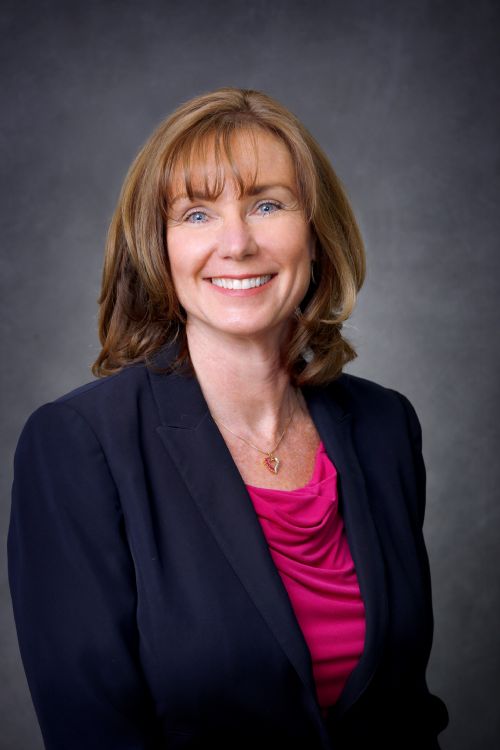Time slot's time in Taipei (GMT+8)
- 2023/10/15
- Room 101
- Type: Physical(Eng)
- Sepsis -SECC Keynote Speech / SCCM Joint Symposium
Sepsis
- TIME
- TOPIC
- SPEAKER
- MODERATOR
- 11:30-11:50
- Evolution of the Sepsis Bundles: 2004 to Present
- SPEAKER:
Christa Schorr
United States (美國)
- MODERATOR:
Biography:
Dr. Schorr is a Clinical Nurse Scientist at Cooper University Hospital and a Professor of Medicine at Cooper Medical School at Rowan University. During her 25+ years in nursing, she has practiced clinically, directed critical care quality improvement and clinical research and was the Program Manager for a North American sepsis clinical trial. Christa received her Diploma in Nursing from Helene Fuld School of Nursing, Bachelor of Science in Nursing from Thomas Jefferson University and her Masters of Science in Nursing and Doctorate of Nursing Practice degrees from Drexel University.
Christa has lectured nationally and internationally and has authored or co-authored over 180 peer-reviewed articles, book chapters and abstracts. Dr. Schorr served as national faculty for the Phase III and IV Society of Critical Care Medicine Surviving Sepsis Campaign (SSC) Collaboratives and three statewide collaboratives.
Dr. Schorr is a member of the SSC Steering Committee and was the 2021 SSC Guidelines Committee Group Head for the long-term outcomes and goals of care section. In 2021, Dr. Schorr received the prestigious Asmund S. Laerdal Memorial Award in conjunction with the 50th annual Critical Care Congress. Dr. Schorr stresses the importance of early sepsis identification, and the significance of patient and family engagement.
Dr. Schorr is a Clinical Nurse Scientist at Cooper University Hospital and a Professor of Medicine at Cooper Medical School at Rowan University. During her 25+ years in nursing, she has practiced clinically, directed critical care quality improvement and clinical research and was the Program Manager for a North American sepsis clinical trial. Christa received her Diploma in Nursing from Helene Fuld School of Nursing, Bachelor of Science in Nursing from Thomas Jefferson University and her Masters of Science in Nursing and Doctorate of Nursing Practice degrees from Drexel University.
Christa has lectured nationally and internationally and has authored or co-authored over 180 peer-reviewed articles, book chapters and abstracts. Dr. Schorr served as national faculty for the Phase III and IV Society of Critical Care Medicine Surviving Sepsis Campaign (SSC) Collaboratives and three statewide collaboratives.
Dr. Schorr is a member of the SSC Steering Committee and was the 2021 SSC Guidelines Committee Group Head for the long-term outcomes and goals of care section. In 2021, Dr. Schorr received the prestigious Asmund S. Laerdal Memorial Award in conjunction with the 50th annual Critical Care Congress. Dr. Schorr stresses the importance of early sepsis identification, and the significance of patient and family engagement.
Abstract:
Evolution of the Sepsis bundles 2004-2023
The sepsis bundles were composed to provide clinician with elements from the Surviving Sepsis Campaign (SSC) guidelines that can be implemented at the bedside. Sepsis bundled treatment is a collection of tests and treatments that assist the clinician to identify sepsis early and initiate treatment. The first bundles were established in 2005 and were based on the first SSC guidelines published in 2004. The 2005 bundles were known as the 6-hour (resuscitation bundle) and 24 hour (management) bundles. Date indicate that overall mortality was lower in patients that received bundle adherent care compared to those that did not. In 2012 the bundles were revised to the 3-hour and 6-hour bundles, which most hospitals are currently using. An update of the 2012 was published in 2018, Hour-1 bundle. The Hour-1 bundle was established to identify sepsis as an emergency and to implement treatment within one hour of severe sepsis/septic shock recognition. The Hour-1 bundle was met with some controversy and misunderstanding. Some hospitals may be implementing the Hour-1 bundle while others are using the 3 and 6-hour bundles. It is important for clinicians to understand if there are outcome differences if using the Hour-1 or 3-hour bundle. A cluster randomized study is currently underway in the U.S. comparing 18 hospitals, nine in the Hour-1 bundle group to the nine sites in the 3-hour bundle group.
Evolution of the Sepsis bundles 2004-2023
The sepsis bundles were composed to provide clinician with elements from the Surviving Sepsis Campaign (SSC) guidelines that can be implemented at the bedside. Sepsis bundled treatment is a collection of tests and treatments that assist the clinician to identify sepsis early and initiate treatment. The first bundles were established in 2005 and were based on the first SSC guidelines published in 2004. The 2005 bundles were known as the 6-hour (resuscitation bundle) and 24 hour (management) bundles. Date indicate that overall mortality was lower in patients that received bundle adherent care compared to those that did not. In 2012 the bundles were revised to the 3-hour and 6-hour bundles, which most hospitals are currently using. An update of the 2012 was published in 2018, Hour-1 bundle. The Hour-1 bundle was established to identify sepsis as an emergency and to implement treatment within one hour of severe sepsis/septic shock recognition. The Hour-1 bundle was met with some controversy and misunderstanding. Some hospitals may be implementing the Hour-1 bundle while others are using the 3 and 6-hour bundles. It is important for clinicians to understand if there are outcome differences if using the Hour-1 or 3-hour bundle. A cluster randomized study is currently underway in the U.S. comparing 18 hospitals, nine in the Hour-1 bundle group to the nine sites in the 3-hour bundle group.


